Table of Contents
Overview
At Explorer Dubai Ltd., we have the best workers in textile factories in German or any country worldwide. Our factory workers are the best there are in Uganda.
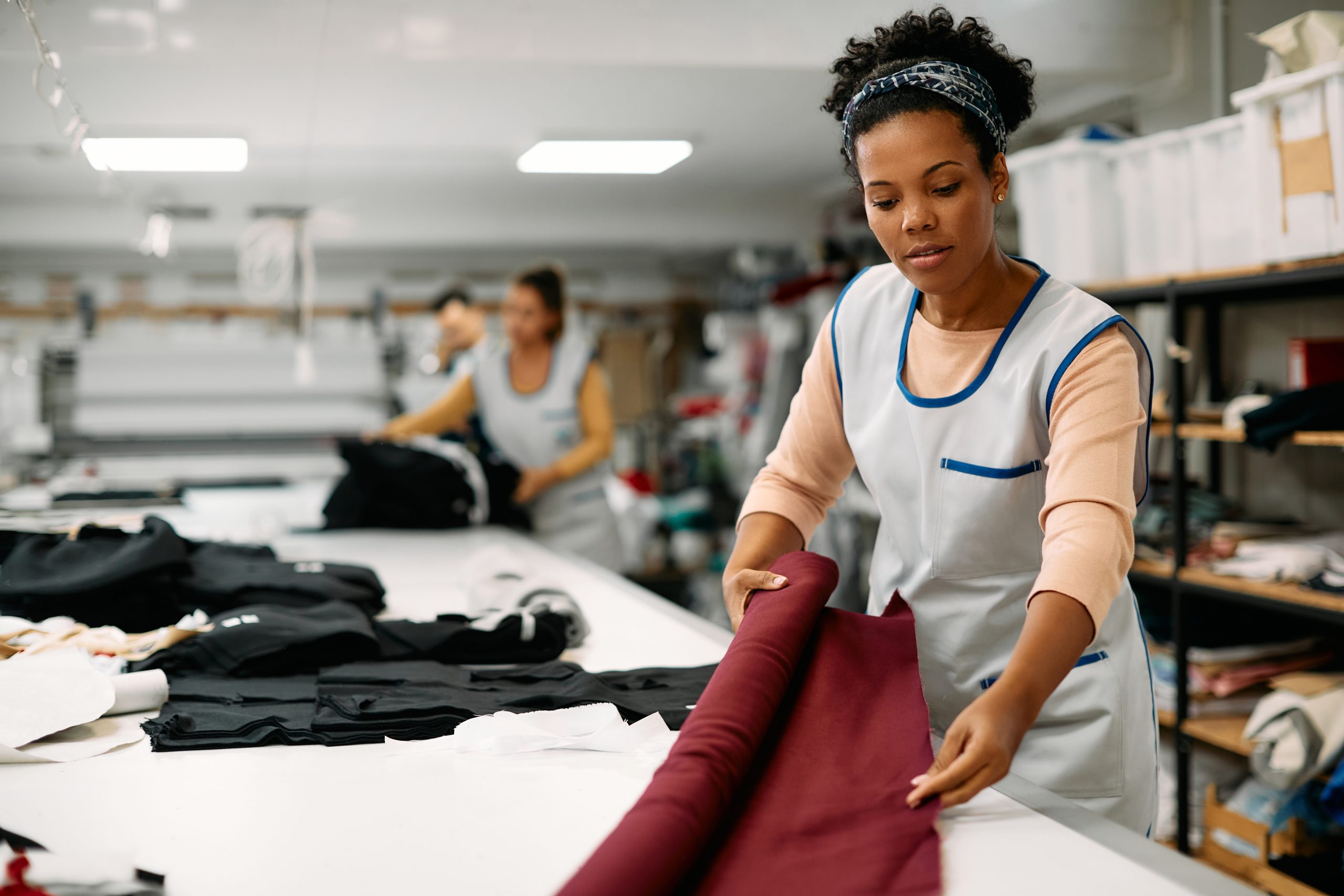
Our textile factory employees primarily operate and maintain the manufacturing line and any other machinery in your textile factory that may break down.
Sometimes, our Ugandan factory workers specialize in categories like tailoring, sewing, and dressmaking, all geared towards making extremely durable and fashionable fabrics for clothes and garments. But, on the whole, our cloth factory workers do all it takes to make the attractive clothes and garments we wear or see people wearing.
Generally, for any clothing that your company specializes in, count on us for the best factory workers.
Any owner of a cloth factory would delight in hiring workers who would take the business to greatness. However, close monitoring of these employees is essential to get the best results. This is why we come to your aid and recruit on your behalf.
Okay. When In German, What Do Ugandan Textile Factory Workers Do?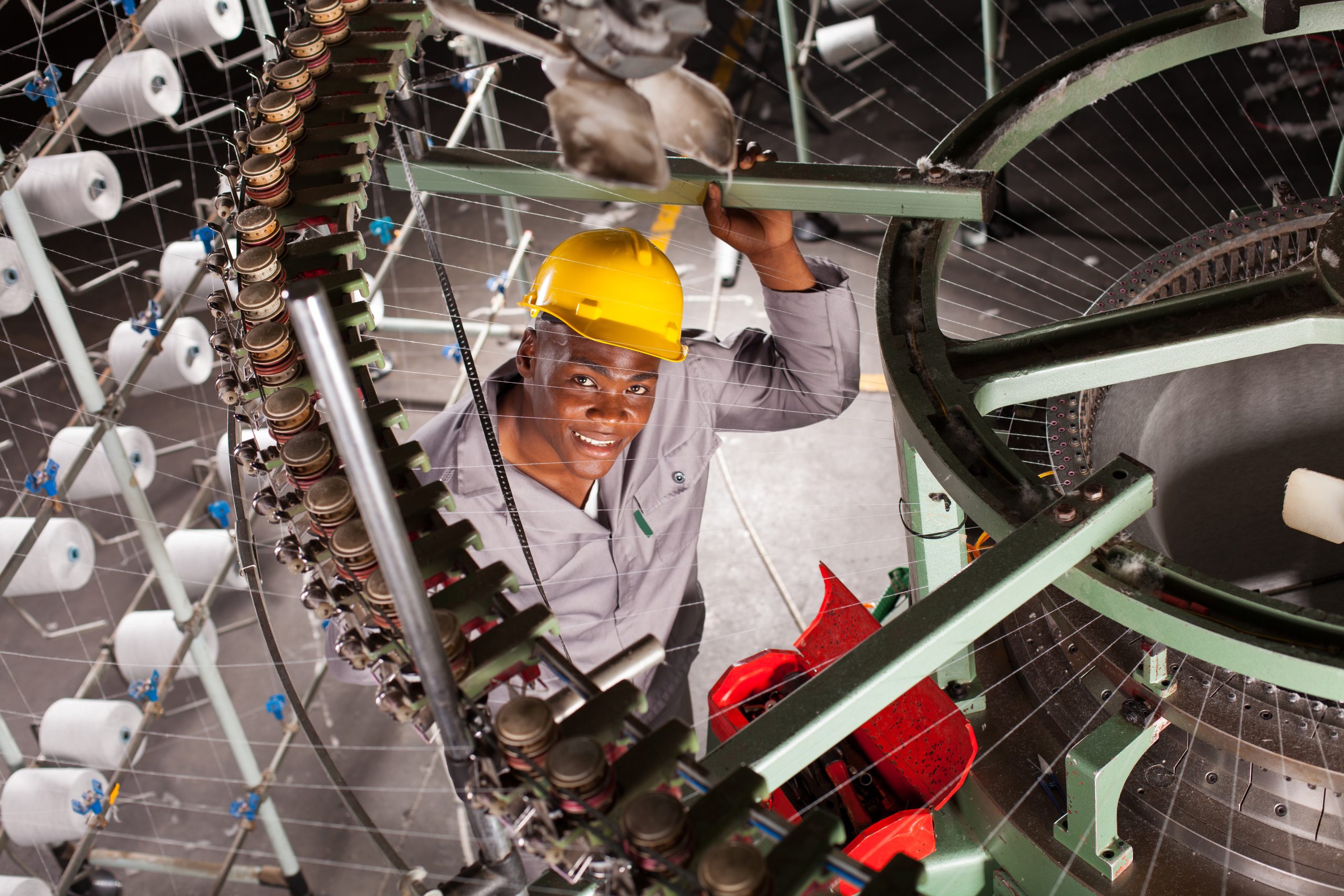
- A person who works in your textile factory, if you will. We refer to the factory where our clothing is made as the “textile factory.” Production and processing are where your cloth factory employees spend their days.
- They may focus on one or more of the textile arts, such as tailoring, sewing, or dressmaking, to create high-quality, stylish clothing and apparel.
- These jobs, which we’ve put into the following categories, are well within the abilities of the people who work in our garment factory.
- Machinists run a wide range of machinery. Therefore, an advanced education degree and relevant work experience are prerequisites for this position.
- Assemblers also referred to as general labourers, are responsible for the production and assembly of textiles (clothes and garments) (the merchandise of the textile company).
- Packagers are responsible for preparing finished textiles for shipment. Handlers are responsible for a wide variety of tasks, including but not limited to quality control checks, packing, loading and unloading containers, etc.
- In the fourth group, we have the repairmen and women who keep the factory’s machinery and tools functioning. In addition, they notify their superiors about broken or malfunctioning machinery so they can be given instructions on how to fix it.
Why Is That The Case If Ugandans Are So In Demand In German?
What makes Explorer Dubai Ltd. the best option is that we only hire factory workers who are qualified to work in a global context.
Strength And Vitality
All of the factory workers here are robust and active. They can function in various weather, including wind, rain, and sunshine. Since they are in good health, they can put in long shifts every day.
Superior In Ability And Knowledge.
All of the people who work in our garment factory know how to use the machines and tools that are needed to make clothes. Machinists, assemblers, and maintenance workers across the organization are no exception. That way, they’ll have an easier time running the machinery and tools in the factory and fixing them if they break.
Diligent And Prompt In Their Work.
Because of their reliability, production line workers from Uganda are in high demand in German. This will allow them to complete the tasks in as little time as possible while still being careful and dedicated to the job at hand. They take their time with their work to ensure everything runs smoothly in the factory.
Extremely Cautious
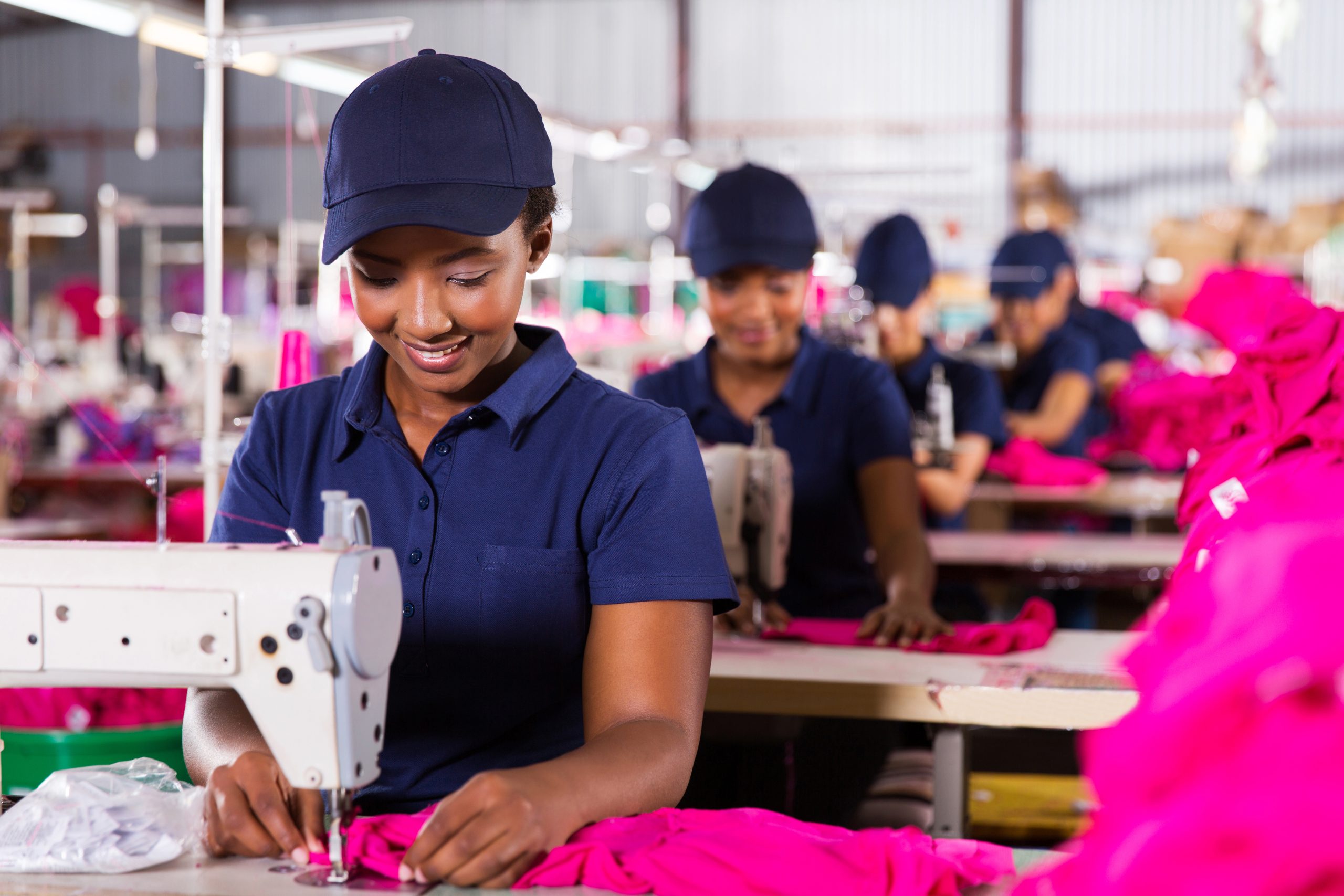 They have excellent hand-eye coordination and a high level of vigilance. The goal here is to make the factory, its machinery, and any sharp objects safer places to work. Therefore, workers in the textile industry are strongly encouraged to protect themselves from the dangers of their jobs by always donning protective gear such as goggles, boots, face masks, etc.
They have excellent hand-eye coordination and a high level of vigilance. The goal here is to make the factory, its machinery, and any sharp objects safer places to work. Therefore, workers in the textile industry are strongly encouraged to protect themselves from the dangers of their jobs by always donning protective gear such as goggles, boots, face masks, etc.
Motivated Individuals Who Work Well In A Team
They work well together as a team and perform well independently. Worker recruitment at textile mills typically occurs in large numbers. Therefore, it is appropriate to show tolerance toward one’s boss and coworkers.
Effective Stress-Controllers
Despite the hectic nature of factory work, our employees never show signs of exhaustion. They don’t grumble about trivial things like some other workers might. Even when they’re completely worn out from their jobs, they manage to keep their cool. This is one of the reasons why factory owners in German and elsewhere favour hiring Ugandan workers.
Successful Communicators
They have excellent communication and people skills. Therefore, being humble and polite when interacting with coworkers is wise. Our Ugandan factory workers are also eager to expand their linguistic horizons. As a result, they prioritize studying Arabic and other regional languages spoken in German. It makes things simpler in the factory.
In Order To Find Work In A German Textile Factory, You Will Require The Following.
- You need to have completed the equivalent of at least one of the O levels or one of the A levels. Complex tasks, such as operating machines, necessitate training in driving and mechanics or in some engineering courses. UTC Kicwamba and UTC Kabale offer training (certificates and diplomas), while Makerere University and Kyambogo University both offer degrees in engineering.
- During your training, you will have to learn about the way people work in German and get the skills you need to work in a textile factory.
- Having excellent listening and talking skills is essential.
- You should be prepared to work for long periods of time.
- You should expect to put in extra time, even on days off. These times may occur in the wee hours of the morning or late at night.
- You need to be polite, engaging, and well-mannered.
- You need to be someone who thrives on being part of a tight-knit team that moves quickly.
Here Are 25 Interesting Truths About German That Make Ugandan Textile Factory Workers Love German
In Germany, There Are One Thousand Different Sausage Types!
In Germany, you can find more than a thousand different kinds of sausage. Sausage is a staple in the German diet, so much can be said. In Germany, you can find sausages like:
- Bratwurst Blutwurst
- Weisswurst Knackwurst
- Currywurst
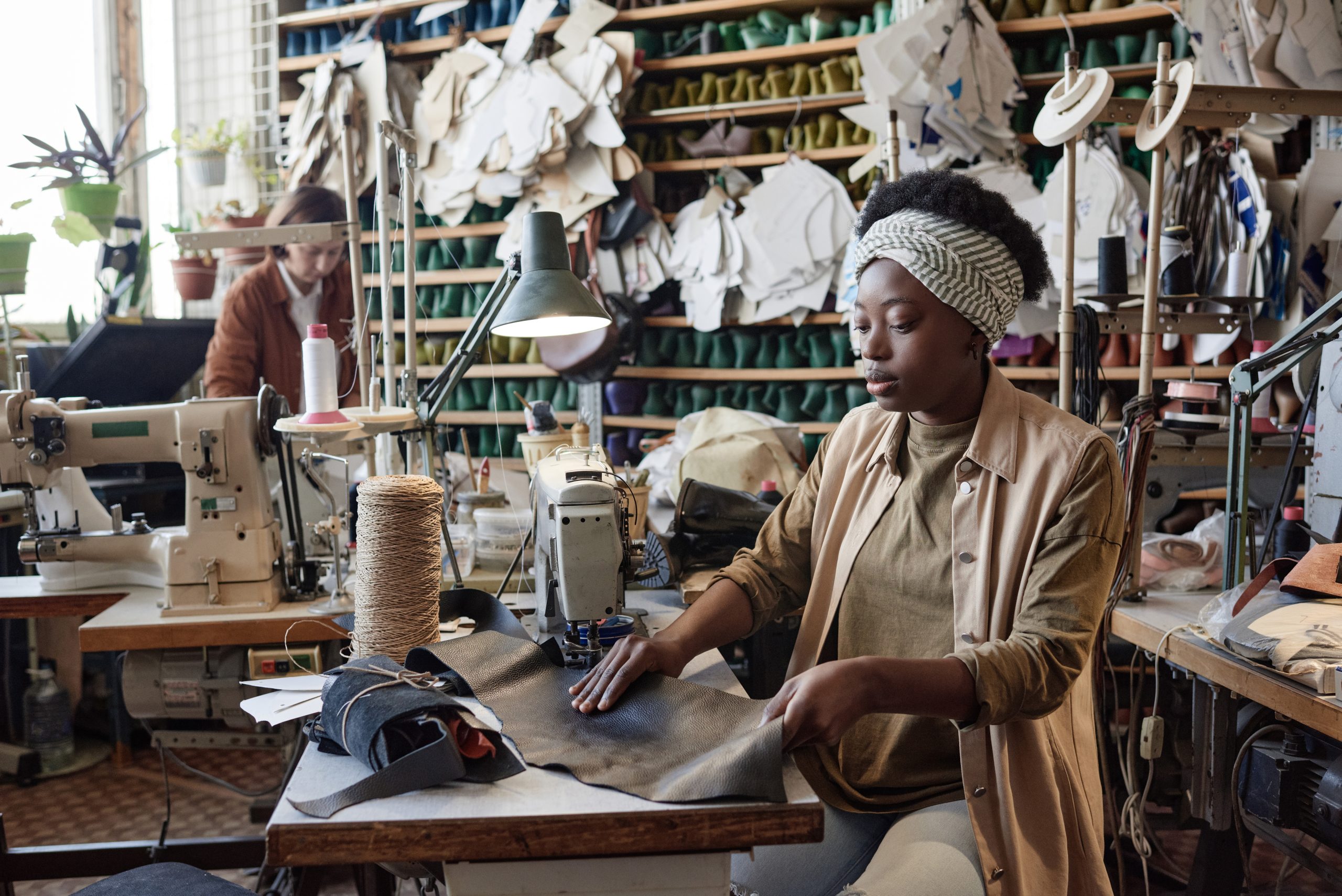
African tailor sitting at her workplace with sewing machine and sewing products in factory These sausages have distinctive flavours thanks to the unique blend of spices used to season them.
2. The surname Müller is the most common in Germany.
In Germany, the most common last-known name is Müller. There are more than 900,000 people with this last name in Germany. Other common German surnames include:
- Schmidt
- Schneider
- Fischer Weber
- Meyer
- Wagner Becker
German surnames typically refer to a person’s line of work. For example, Schmidt means blacksmith in German; Weber means weaver, and Becker means a baker. Nomenclature in German closely resembles that in English.
3. In Bavaria, beer is eaten as a staple.
The majority of Germany views beer as nothing more than a beverage. But it’s ingrained in Bavarian culture. The annual beer consumption per capita in Bavaria is about 150 litres. Keep reading: Top Attractions in Germany’s Bavarian Capital.
The residents of Bavaria drink more beer than those in any other German state. Bavaria is home to nearly half of Germany’s breweries. It’s the most densely populated region in the entire Federal Republic. Check out The Ultimate Travel Guide to Germany’s Romantic Road as well.
The beer halls and cellars in Bavaria are enormous. It’s intrinsic to their beliefs and practices. If you are passionate about beer, you must travel to Bavaria and tour the various breweries there.
4. In Germany, bread is a staple.
Germany also has more than 300 different types of bread, which is a fun fact in and of itself. Plus, that only accounts for potential regional differences!
Pastries, cakes, and other baked goods number over 1,200 varieties. If you’re the type of person who gets excited about trying new foods from different cultures, then Germany is the place for you.
If you find yourself in Germany, here are some bread you must try:
- Brötchen
- Pretzel
- Vollkornbrot Milchbrötchen
If you like carbohydrates, Germany is the place for you.
5. Fifth, the gummy bear was created in Germany.
In 1920, Hans Riegel of Bonn, Germany, started his candy manufacturing business. He had had enough of his dead-end job in the candy industry. Initially, he made hard, colourless candies, and his wife delivered them.
When his hard candies failed to sell at street fairs, he developed the idea to make fruit snacks out of gelatin. While he didn’t come up with the recipe from scratch, he did make significant improvements. They are modelled after Japanese rice candies and Turkish delights.
6. Oktoberfest was originally a wedding celebration.
In 1810, on October 12th, the first-ever Oktoberfest was held. In honour of the marriage of Crown Prince Ludwig to Princess Therese of Sachsen-Hildburghausen (later King Ludwig I of Bavaria), the festivities lasted for five days.
It became so popular that it is now celebrated annually with a piece of fare, live music, and plenty of tasty treats. Beer halls replaced booths over time. Modern breweries can fit as many as six thousand people inside these temporary structures.
During Oktoberfest, approximately 2,000,000 gallons of beer are consumed annually. In addition, there will be dancing, games, and amusement rides at this festival. The annual Oktoberfest attracts more than 6 million revellers.
7. Number seven: JFK was not a jelly donut.
It is commonly believed that then-President John F. Kennedy of the United States stood before the Berlin Wall in 1963 and proclaimed, “Ich bin ein Berliner.” The president of the United States proudly declared that he was a “jelly donut,” and the news spread worldwide.
A “Berliner” is a jelly donut in other places than Berlin. Pfannkuchen is the term used in Berlin.
He indeed gave a speech on that day. And Kennedy was notoriously bad at picking up and using foreign tongues. But he meant every word of that speech.
What Kennedy said was true. He deviated from the prepared text and gave a powerful speech to the nervous citizens of Berlin.
8. Germany is home to the largest cathedral in the world.
Cologne, North Rhine-Westphalia, Germany, is home to the Cologne Cathedral. Northern Europe’s largest Gothic cathedral. It has the second-highest spires in the world. The world’s largest church, thanks to its towering spires.
Construction on what is now known as the Cologne Cathedral began in 1248. It wasn’t until 1880 that work finally stopped on the cathedral.
9. In Germany, trying to break out of jail is not illegal.
Freedom-seeking is seen as an inherent human quality in Germany. This means that inmates who attempt escape will not face any additional consequences.
However, the prisoner will be held accountable for any crimes committed during the escape attempt, including property damage, individual injury, and even death.
10. Germany has a deep affection for castles,
Some of the world’s most stunning castles can be found in Germany. If you plan a nice trip to Germany, you’ll have your pick of over 20,000 castles. There is something for everyone, whether you want to see well-known castles like Neuschwanstein or discover the lesser-known ones.
Among the best German castles to see are:
- The Castle of Neuschwanstein
- Castles of Hohenzollern,
- Schwerin,
- Heidelberg,
- Wartburg, and
- Marburg
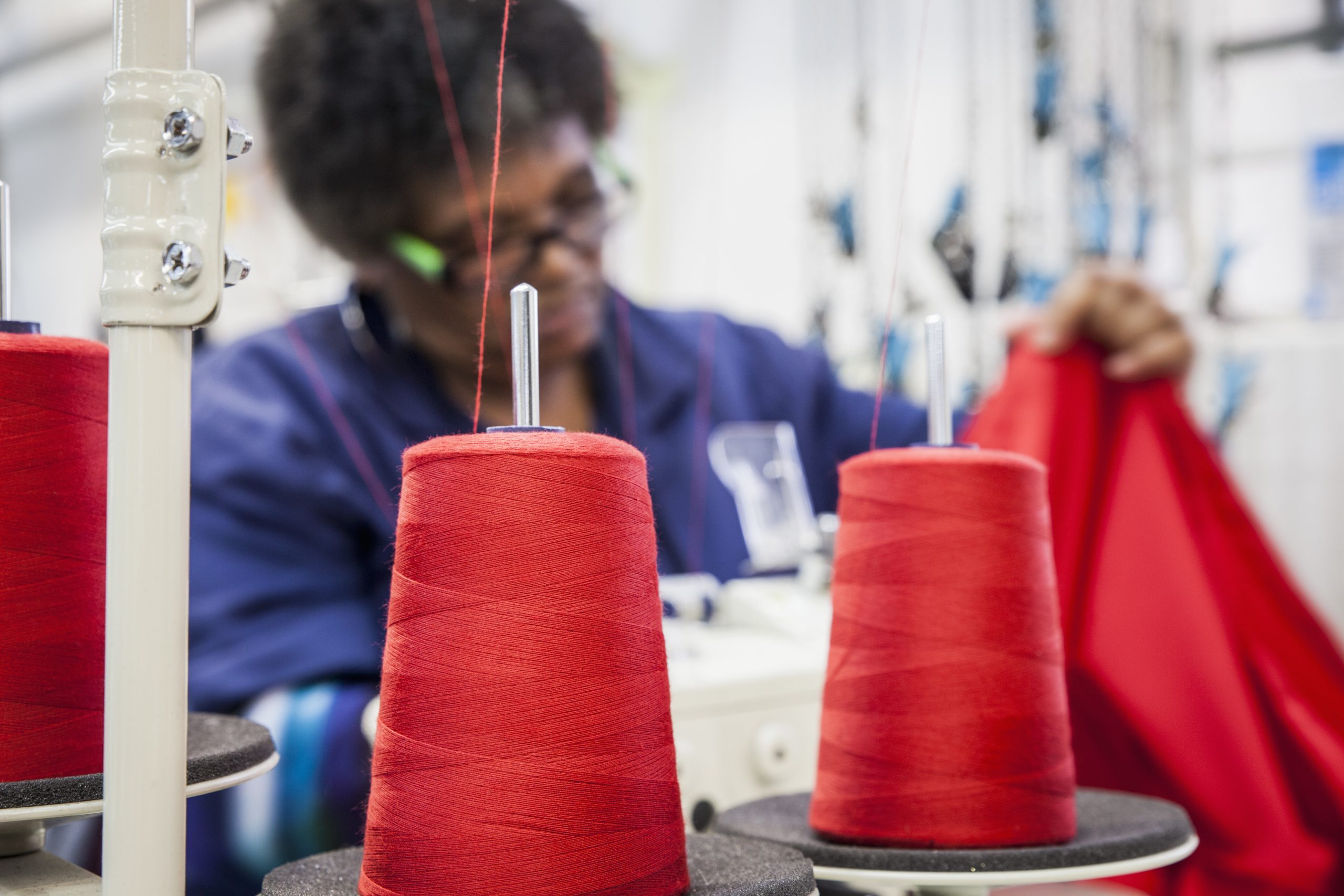
Seamstress working on overlocker in factory, Cape Town, South Africa There is no shortage of magnificent castles in Germany.
11. There Are Still Thousands of Bombs in Germany
Did you know that there are still thousands of bombs stashed away in various locations in Germany? These items are wartime relics.
Over 2,000 tons of unexploded WWII bombs are still being found every year, 70 years after the war’s end. As a result, experts must verify the site is safe from explosives before construction crews can begin digging.
The finding of these bombs is also not trivial. For example, in 2013, over 20,000 people had to leave their dwellings in the western German city of Dortmund after a 4,000-pound Blockbuster bomb was discovered there. If it were to explode, an entire city block could be destroyed.
Even though Germany has been at peace since the end of WWII, it has one of the world’s busiest bomb squads.
12. The legal alcohol-drinking age in Germany is 16.
You know that beer plays a significant role in contemporary German culture and daily life. It’s so common that citizens’ legal drinking age is lowered to 16. Wine and beer are acceptable, but they must wait until 18 to drink hard liquor. Many European nations share this practice.
13. Did Germany pioneer the use of daylight-saving time?
Germany pioneered the use of daylight-saving time in 1916. They sparked a revolution that rapidly spread across Europe and eventually landed on American shores.
“Spring Forward” World War I was in full swing when the clock began. The fad became widely popular in a matter of weeks. Not until 1918 did it become common practice in America.
14. Festive Occasions in Germany
We all know that Oktoberfest is Germany’s biggest party. But did you know that legend has it that Germany is where the first Christmas tree was set up?
It was in modern Germany that the Christmas tree first appeared. We now know that the use of evergreen trees as symbols dates back to ancient Egypt and Rome. Germany kept the custom alive by adding candles to their winter solstice decorations.
15. There are more than 400 zoos in Germany.
There are 414 zoos in Germany. Therefore, Germany has more zoos than the entire United States combined. Berlin’s Zoolischer Garten is Germany’s largest and longest continuously operating zoo. The greatest number of animals can be found there. The Berlin Zoo is home to 19,500 animals from 1,500 different species and spans 84 acres. Numerous visitors flock there annually. There are more than three million annual visitors to the zoo and aquarium combined.
Forests make up a third of Germany’s land area.
There are more than 11.4 million forest acres in Germany. About 32% of Germany is forested, which is a significant amount.
There is a large area of stunning forest to explore, perfect for camping adventures you won’t find anywhere else.
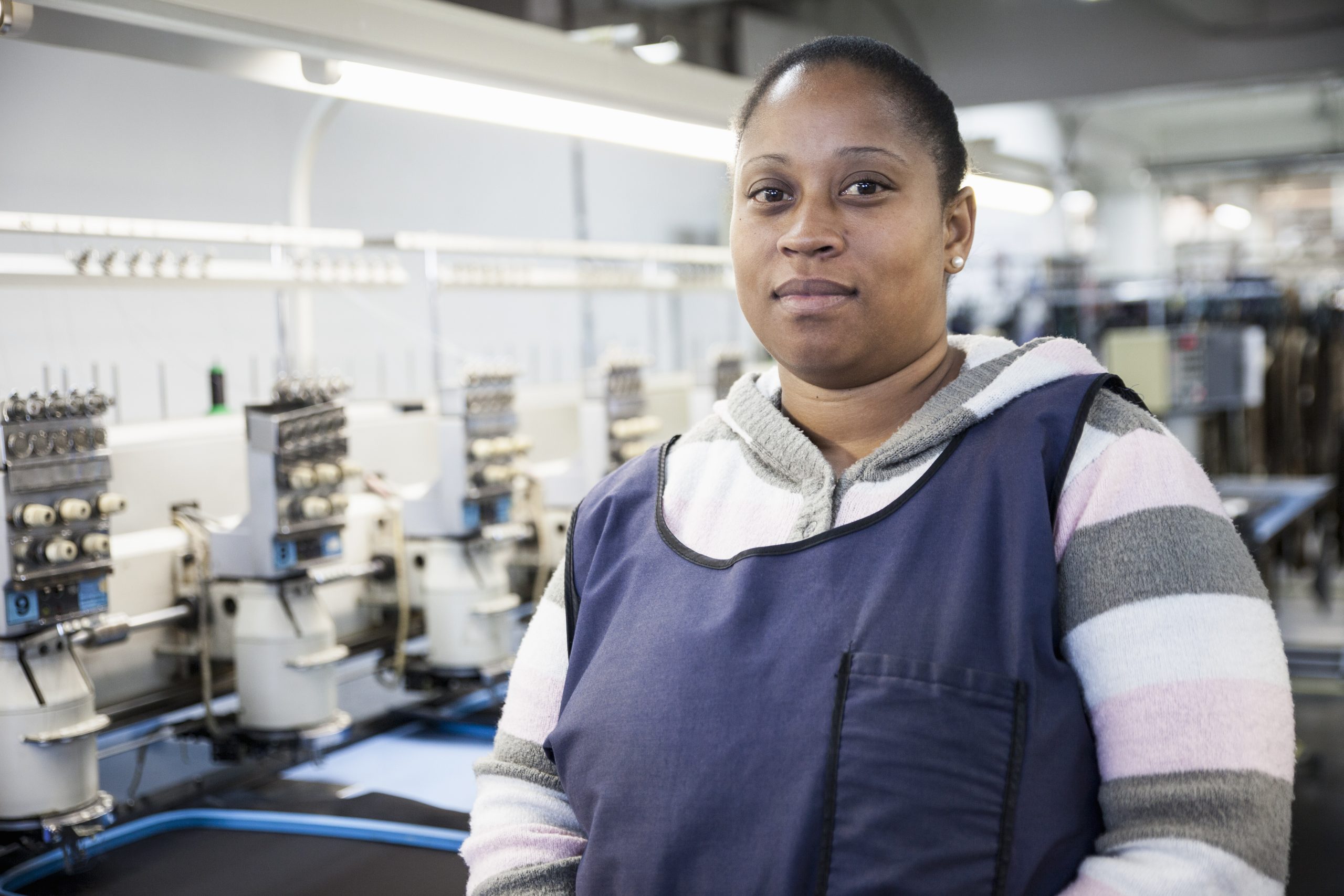
- After the United States, Germany is one of the most sought-after places to live abroad. Energy and climate policies in the country are among the best in the world.
- The capital of Germany has moved seven times in its history.
- Regarding airport punctuality, Munich ranks second best in the world.
- A significant player in the global auto industry.
- Employment rates are very high.
- Excellent reputation as a retirement community.
- The EU member state with the most people living in it. Eighty-one million people are living there.
- Renewable sources meet the energy needs of nearly a third of Germany.
- The Berlin Hauptbahnhof is Europe’s largest train station.
Why Should You Hire Explorer Dubai Ltd for Textile Factory Worker in German?
At Explorer Dubai Ltd, we pride ourselves on understanding our client’s concerns. We go above and beyond to ensure their safety and well-being. Here’s why we are always a step ahead of other Ugandan recruitment agencies for Textile Factory Workers in German:
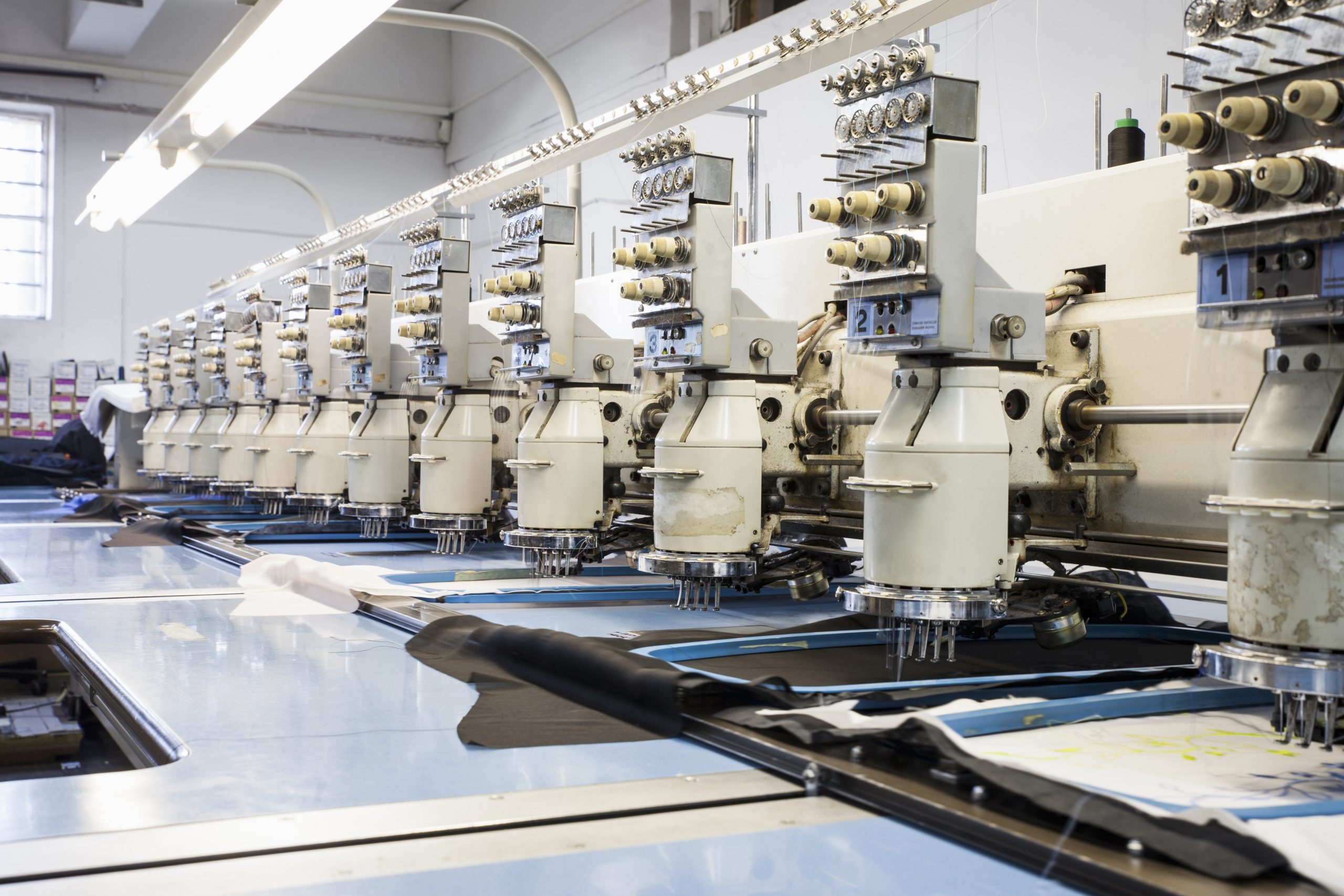
- We have a proven long and successful history of providing qualified and experienced Textile Factory Workers to German.
- We offer a hassle-free and cost-effective service.
- We are also dedicated to finding the best match between the candidate and the employer.
- We have a proven track record of successful placements.
- We offer a personal and professional service.
- We provide the best quality service.
- We offer the most competitive rates.
- We have a good reputation.
Why Should You Hire Explorer Dubai Ltd. for Textile Factory Worker in German?
At Explorer Dubai Ltd we pride ourselves on understanding our client’s concerns. We go above and beyond to ensure their safety and well-being. Here’s why we are always a step ahead of other Uganda recruitment agencies for Textile Factory Workers for German facilities:
- We have a long and successful experience in providing qualified and experienced Textile Factory Workers to German homes and offices.
- We offer a hassle-free and cost-effective service.
- We are dedicated to finding the best match between the Textile Factory Worker and the job at hand.
- We have a proven track record of successful placements.
- We offer a personal and professional service.
- We provide the best quality service.
- We offer the most competitive rates.
- We have a good reputation.
How Does Our Three-Step Recruitment Process Work?
The three easy processes that German employers take to hire Ugandan labour here at our company are:
- The First Step
- The Second Step
- The Final Step
Make an appointment right away for your free consultation! Or
Don’t hesitate to get in touch with us today or
WhatsApp or simply
Book Online
- Remember to give us your demand specifics, including:
- The necessary number of staff members
- The date by which you require them
- The country of the worker’s final destination.
- The workers’ salary range.
- The age, experience and academic requirements
- Basic medical tests to be done
We guarantee an immediate response, and if that’s not feasible, one within the next twelve hours.
We will provide you with twice as many resumes as the minimum required for selection.
We will schedule candidates interview in accordance with your preference, which will consist of either:
A physical interview. During this, we will assist in the organization of your accommodation and interview location; Or
An interview conducted through Skype
We are going to get the appropriate clearances from the government.
You will receive the Ugandan workers right at the Airport of your choice!
Our Guarantee
At Explorer Dubai Ltd we’re confident that you’ll appreciate our Textile Factory Worker professionals. We also offer a 3-month performance guarantee and will replace any Textile Factory Worker that doesn’t meet your expectations for free. Our Textile Factory Workers are professionals that have become a necessity for our clients over the years overseas.
How Much Does It Cost?
We keep our recruitment ethical and completely free.
Nevertheless, we are quite familiar with the international migrant labour market because the criteria for workers in each country vary. We understand that each country’s labour requirements differ, and we are happy to discuss your specific needs in a one-on-one conversation.
Our goal is to provide superior services at an affordable price. We take great pride in providing services that are both low-cost and of the highest possible quality.
Get In Touch with Us
Regarding Textile Factory Worker professionals for German works, there are many factors to consider. But you can’t go wrong with Ugandan Textile Factory Worker if you’re looking for a reliable, efficient, cost-effective Textile Factory Worker. Their years of experience know how to handle any situation and always have your best interests at heart. So, consider a Textile Factory Worker for your work if you need a professional Textile Factory Worker.
Our Recruitment Top Secret
“Now, let me reveal this brand-new secret that everyone else is talking about! Finding a reliable Textile Factory Worker who can be relied on is a stressful process. We are at your service because we know that hiring a reliable Textile Factory Worker will allow you to focus on important activities. Hire a Ugandan Textile Factory Worker for your work or home care today! We have a very fast deployment pace!
Make an appointment right away for your free consultation! Or
Please contact us today or
WhatsApp right now? or
Book Online Tonight!




